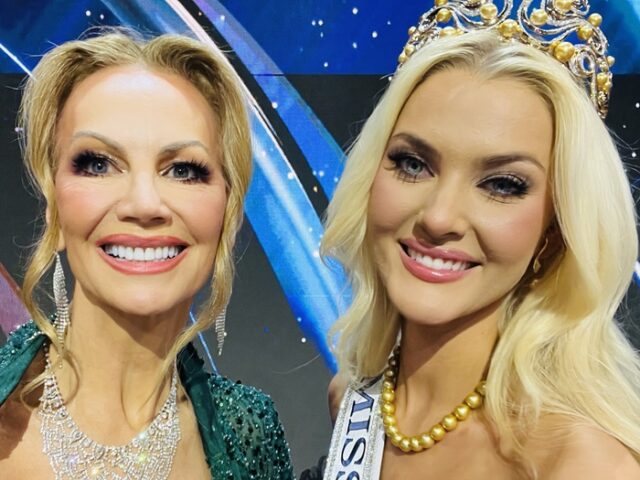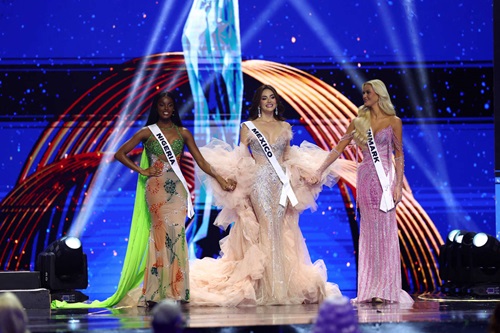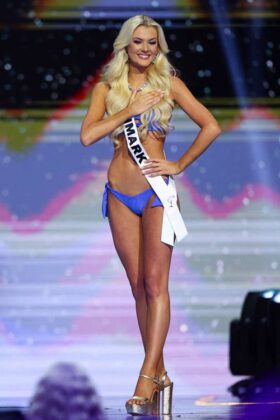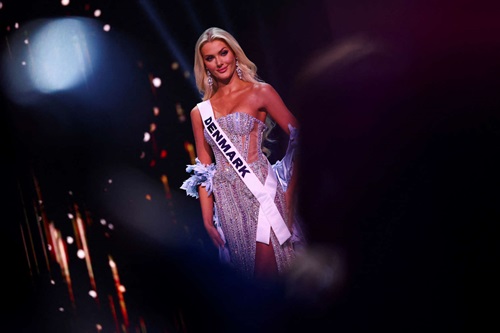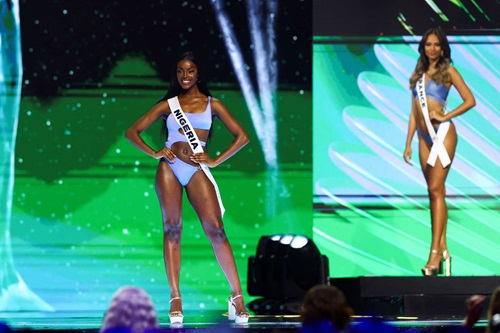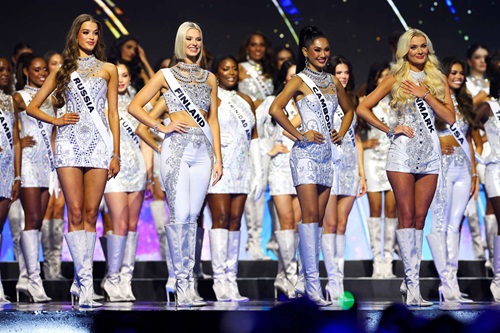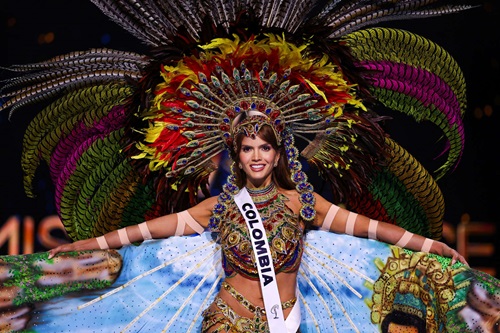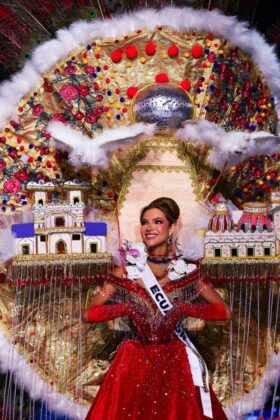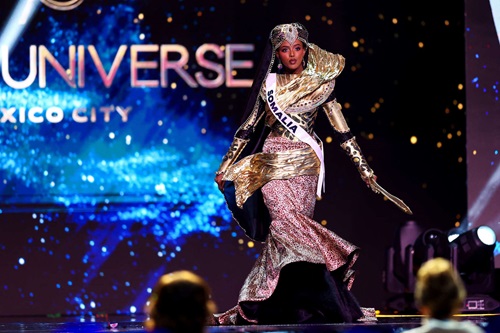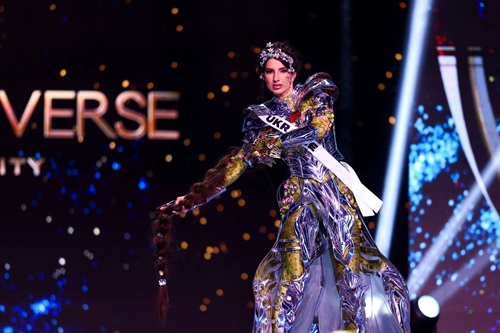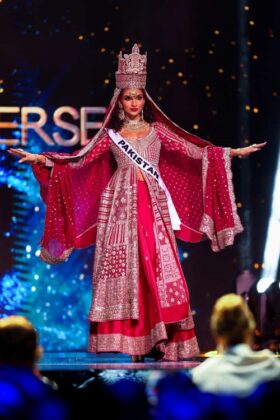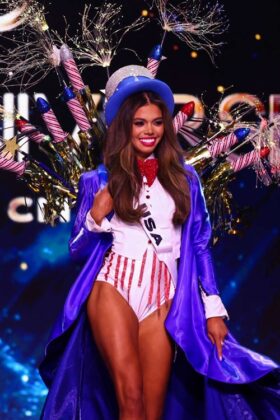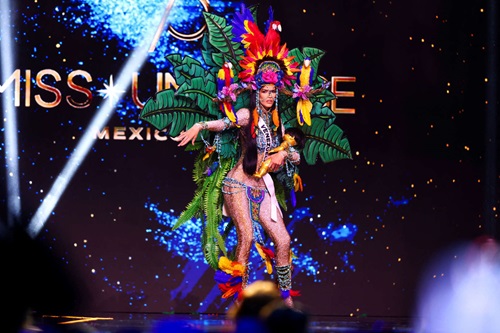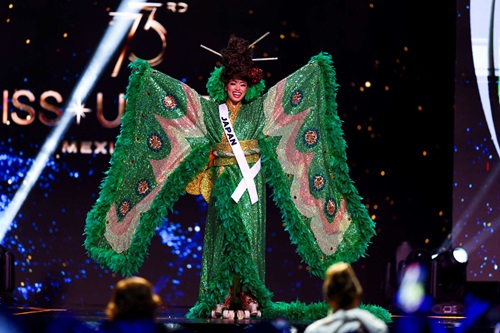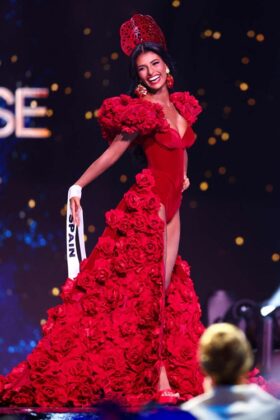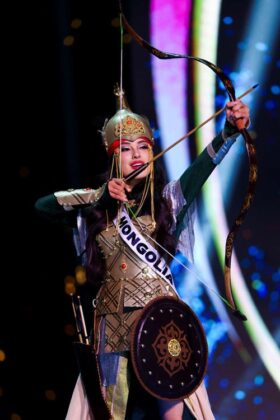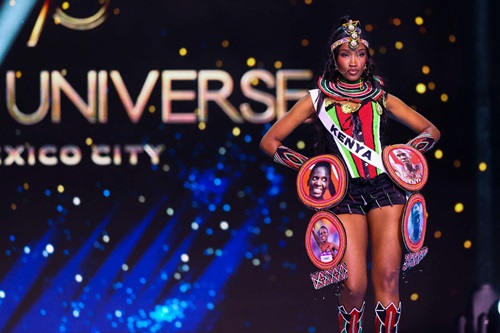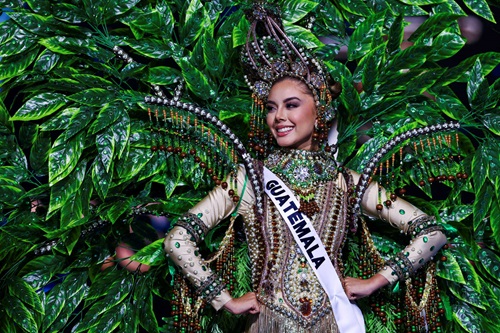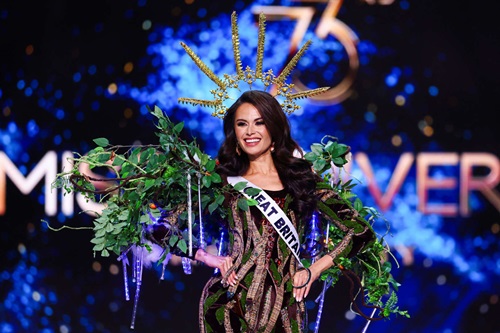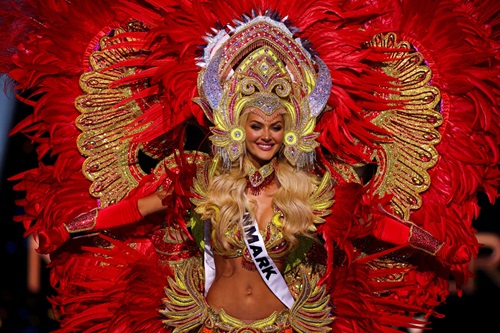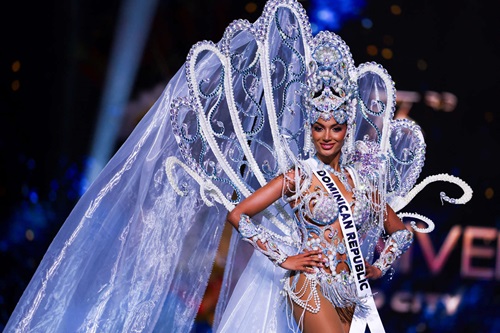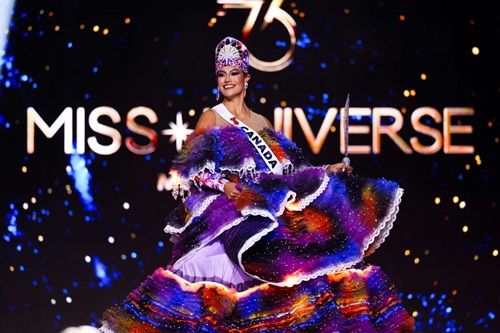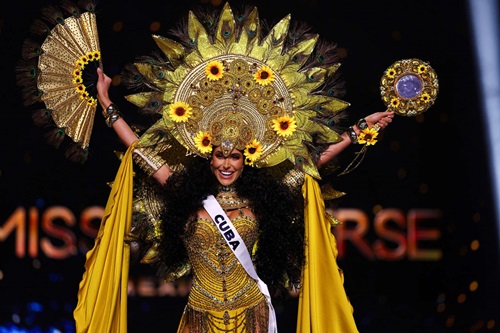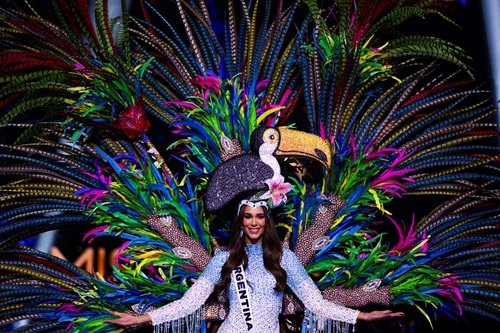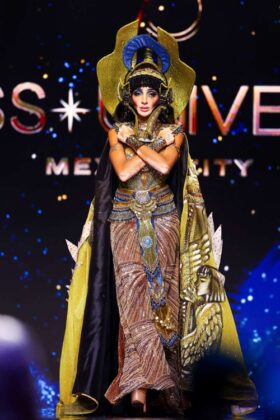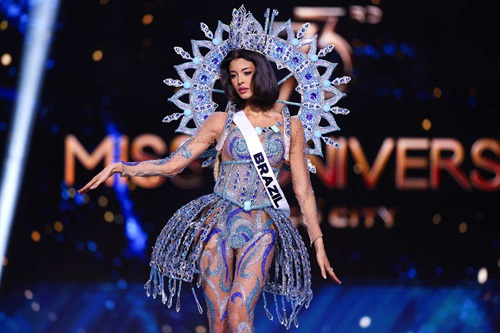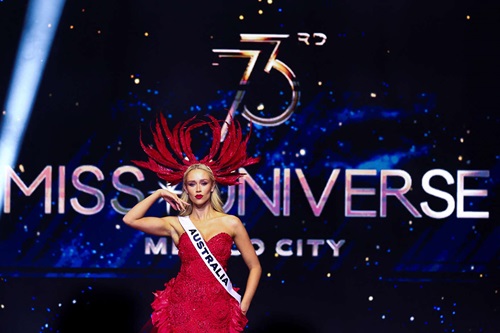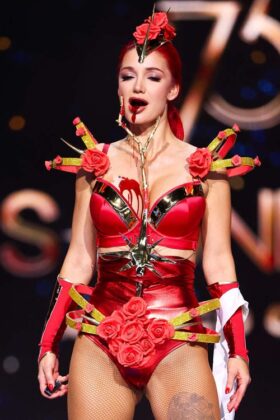by Dr. Laura Wilhelm, LauraWil Intercultural
The Miss Universe 2024 pageant was held on Saturday, November 16th at the Arena CDMX in Mexico City, one of the world’s leading financial and cultural centers. The spectacular contest capped over two weeks of city tours, parties, and other amusements designed for the record 125 contestants representing nations ranging from Albania to Zimbabwe.
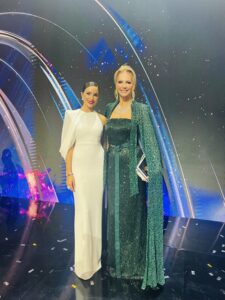
The pageant’s presenters were the handsome Mexican American actor Mario Lopez, host of Access Hollywood, and the beautiful Italian and Irish American actress Olivia Culpo, who won the 2012 Miss Universe title. Zuri Hall from Access Hollywood and Miss Universe 2018 Catriona Gray provided commentary. The show aired in the United States on the Roku Channel.
Sheynnis Palacios of Nicaragua crowned 21-year-old Victoria Kjær Theilvig of Denmark as her Miss Universe successor at the end of the thrilling event. This was Denmark’s first win in the pageant’s history.
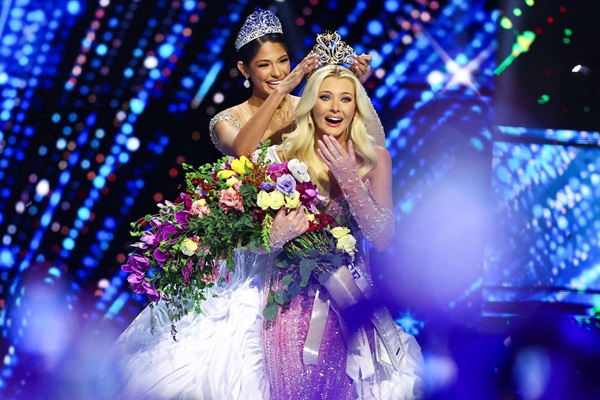
Victoria gave a particularly stirring speech that made her a standout during the all-important questions section. ”. . .No matter where you come from, no matter your past, you can always choose to turn it into your strengths. It will never define who you are. You’re just gonna keep fighting,” she said. ”I stand here today because I want change. I want to make history. And that’s what I am doing tonight, so never give up. Always believe in yourself and your dreams.”
Chidimma Adetshina of Nigeria was crowned the pageant’s first runner-up. She will assume the Miss Universe title if the winner is unable to fulfill her duties.
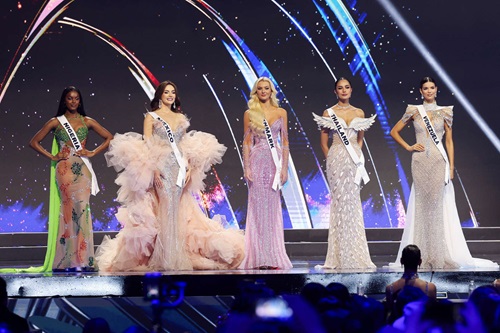
Anne Jakrajutatip, the trans owner and CEO of the Miss Universe, Miss USA, and Miss Teen USA pageants, and the Miss Universe President Raul Rocha both spoke from the stage halfway through the glittering festivities. Robin Thicke, Taboo, Richaelio, Nico Ruiz, and Vikina performed throughout the evening that featured swimsuit, evening gown, and question competitions. The original 125 contestants were cut to 30, then 12, then 5 in the final rounds.
Since 1952 the Miss Universe pageant has sought to celebrate women and elevate their status in the world through career development and cultural exchange. Its advocacy is humanitarian issues, and its contestants strive to effect positive change in the world. Miss Universe titleholders promote the pageant and its international goals for an entire year before moving on to impressive accomplishments of all kinds.
As an example, one of the Miss Universe 2024 judges was Margaret Gardiner, Miss Universe 1978. Margaret hails from South Africa and now resides in Los Angeles with her husband. A longtime writer, Margaret serves as the fashion editor for the Golden Globes. Her new book in a planned trilogy called DAMAGED BEAUTY will be released on February 10th, 2025.
Click here to pre-order her book on Amazon!
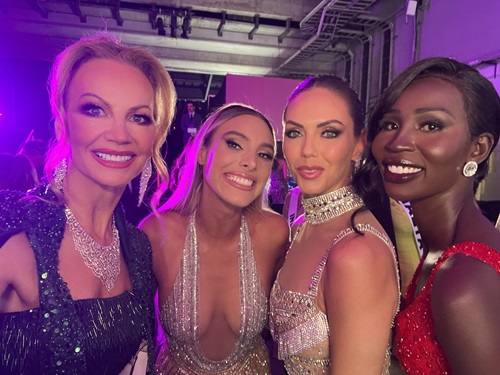
The Hollywood Times was fortunate enough to conduct the following online interview with Margaret Gardiner about the pageant. April Lufriu, who holds several pageant titles including that of Mrs. World 2012, ably assisted this reporter with the interview questions from her home in Tampa, Florida.
How did your experiences as a Miss Universe contestant mold you later on? Which ones do you treasure the most?
Outreach was the biggest lesson. I knew I would never again get an opportunity to experience people like me the world over in one place, and the absolute joy that despite our differences we were so very much alike.
Those unforgettable memories of singing on the stage. Miss Scotland had the best sense of humor and I’m sure I won the pageant in part because of her hilarious comments throughout the time while we were on stage which kept me laughing. It was just a feeling of union.
There’s something about a woman who enters a pageant. She is positive. Outgoing. Inclusive. Innovative. Disciplined. Kind. It’s a sisterhood.
One of my best memories was going to Studio 54 after an official function that Elizabeth Taylor attended and being invited into her limousine to go to Studio 54 with her. Legendary!
This all gave me the confidence to walk into any room alone and make a friend. It also gave me insight into fame. The unexpected discovery after Miss Universe was that fame comes with a price tag. It also allowed me to understand what fame is and not need or desire it.
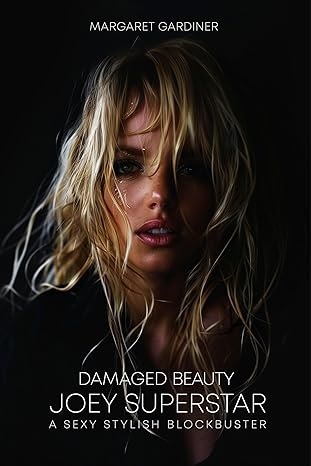 Recent reveals by people in the spotlight regarding the pressures of fame on mental health was one of the reasons I wrote my book, DAMAGED BEAUTY: JOEY SUPERSTAR. People think beauty protects you from pain and that fame minimizes hurdles. As I write this, I have just interviewed Robbie Williams for the film A BETTER MAN. He said, “We are only at the beginning of understanding about mental health and what fame does to people.”
Recent reveals by people in the spotlight regarding the pressures of fame on mental health was one of the reasons I wrote my book, DAMAGED BEAUTY: JOEY SUPERSTAR. People think beauty protects you from pain and that fame minimizes hurdles. As I write this, I have just interviewed Robbie Williams for the film A BETTER MAN. He said, “We are only at the beginning of understanding about mental health and what fame does to people.”
What kind of memories did the 2024 Miss Universe pageant bring back from your 1978 competition?
It was poignant and emotional. I was crowned 46 years ago in Acapulco, Mexico. To be invited back as the only Miss Universe on the selection committee was humbling. To have the Mexican people and pageant fans swarm and connect with me, floored me by their generosity.
To have the most recent winners with millions of fans huddle around me and include me when they had their photo taken with the newly crowned Miss Universe brought tears to my eyes. But that’s pageant women.
The moment the mariachis started playing, my heart constricted. I was back to that 18-year-old standing on the stage in my national costume not knowing the outcome but stepping forward to participate in an adventure of a lifetime that unknowingly would change my life forever.
Which of this year’s national costumes and evening gowns made the biggest impression on you?
There were I25 contestants. I vote individually. I assess what is in front of me. I was extremely emotional, so I do not recall the specific countries’ names, but there were elaborate, amazing costumes that made your jaw drop with wonderment. But there were also simple costumes that represented traditional aspects of participants’ cultures that were spectacular in their meaning.
What qualities did you look for in the 2024 contestants and why?
Composure. Connection with others. Intelligence. Ability to think on their feet and articulate a vision for their generation and a platform that addresses relevant issues that resonate.
Do you believe that perceptions of beauty are always shaped by cultural biases? If so, does the Miss Universe pageant work to counteract these biases?
Beauty is subjective, but it is universal. That is why both Pollock and Monet are considered masterpieces. However, there is an aesthetic upon which we all agree that makes someone beautiful. While the outsides resonate, ultimately it is what one does with one’s outsides that fosters the impression of beauty.
Always overriding the physicality is the grace, posture, elegance, warmth, confidence, and communicative outreach in expression. It is a culmination of yes, physicality, but ultimately it is how the insides manifest with the outside that sets a winner apart.
You asked one of the finalists to describe the ideal woman of today. What would be your answer to this?
Non-judgmental, inclusive, willing to speak up, work hard, and be flexible but also willing to innovate, evolve, and advocate. To have the courage to be herself no matter what the current trend is, to bring those left behind forward, and to shine a light on those that have gone before.
Some people think that beauty pageants are on the way out, yet Miss Universe had a record 125 contestants this year. Do you think this is a promising sign?
There are few opportunities in this world to gain an immediate platform. Miss Universe allows that. That’s why it’s about more than just looks.
The tired arguments of exploitation are just that. Multinationals that use young talent, overwork them and underpay them while getting golden parachutes for failing, are way more exploitive than walking on a stage in something you wear in public anyway. The idea that you are opening yourself for judgment by entering a pageant defies the truth that we are judged on every level, every day. In a job interview, when we enter a room, when we raise our voices.
False fierceness on my behalf plays into concepts of patriarchal ideas. Critics of pageants imply that contestants who voluntarily participate in a pageant are ‘too stupid’ to understand the exploitation. That we are putting ourselves forward to be judged physically and that we are demeaned by doing so.
That suggests the lack of free will, of intentional action towards a desired outcome, of leveraging opportunity specifically. Entering a pageant is a calculated endeavor to effect access that translates to success. You appear in a swimsuit for a few minutes, then an evening gown, and you are asked some tricky questions that might give the average person pause. The payoff is to manifest your destiny as you see fit on a world stage.
Here is a question for the critic. How often have you said, “She’s beautiful, and surprisingly smart too”? How often have you said, “She’s ugly, and surprisingly smart too”? If you’ve ever uttered anything like the former sentence and never the latter, could you be unconsciously biased? Predisposed to framing?
As a judge, when I had someone who seemed to anticipate all my questions, I’d ask them this:
When someone has an affinity for numbers, we call them smart. When you are predisposed towards a sport, you are called talented. When you are genetically created in a way people define as beautiful, people say you are lucky, and you have to prove your worth. Have that conversation for me.
What would yours be? I got many great answers, but one of them said simply, anyone who thinks that getting here hasn’t required training – physically, mentally and emotionally – doesn’t know what pageants are.
There’s the famous misquote attributed to Ginger Rogers: ”I did everything that Fred Astaire did, but backwards and in high heels”–and therefore with extra difficulty.
Thank you for this opportunity. My book DAMAGED BEAUTY: JOEY SUPERSTAR appears to be about glamor, movies, and modeling. There’s language, sex, and drugs.
However, it’s really about what happens to women on the edge of fame. The societal framing of women. The things said and done to each of us that we never talk about. The fact that mental health can produce behavior that others mis-label. That there is no one fix.
It explores how women can be misjudged. Ultimately, it is a puzzle that introduces us to someone breaking. In reading we understand why she broke and see if she can find the tools to overcome.


